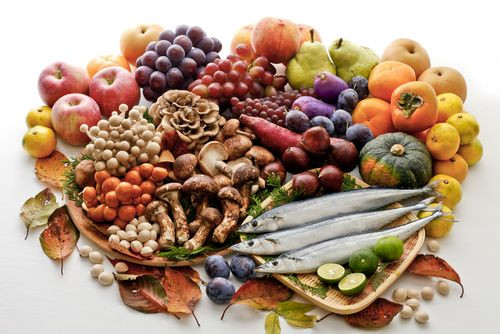Adopt A Mediterranean Diet To Reduce Risk Of First-Time Stroke

1.5 million Americans suffer from cardiovascular diseases and strokes each year. And the usual suspects that cause these conditions are poor diet, sedentary lifestyle, and unmanaged blood pressure. So in a bid to educate people of healthier lifestyle alternatives, the American Heart Association has come up with revised guidelines that suggest adopting Mediterranean or DASH (Dietary Approaches to Stop Hypertension)-style diets, regularly engaging in physical activity, and keeping blood pressure under control to lower the risk of first-time stroke.
"We have a huge opportunity to improve how we prevent new strokes because risk factors that can be changed or controlled — especially high blood pressure — account for 90 percent of strokes," said lead author James Meschia in a statement.
These updated AHA/ASA guidelines have been published in the AHA’s journal Stroke.
The updated guidelines recommend the following:
- Eat a Mediterranean or DASH-style diet, supplemented with nuts.
- Regularly monitor blood pressure at home with a cuff device.
- Control pre-hypertension and take appropriate steps to prevent it from turning into high-blood pressure. These steps include physical activity, healthy diet, and weight management.
- Reduce amount of salt intake.
- Go for regular blood pressure evaluations to the hospital.
- If you find your blood pressure pills don’t work or are causing side effects, ask your doctor for alternatives.
- Give up smoking as it significantly increases chances of stroke. The risk is even more for women who are on birth control pills. Also, if you're a woman who experiences migraines with aura, smoking raises your risk of stroke even more than in the general population.
It has been universally acknowledged that the Mediterranean diet is most heart-friendly, and a testament to this is a fact that incidence of heart disease is lowest in these countries. This sort of diet includes fruits, vegetables, whole grains, legumes, nuts, seeds, poultry, and fish. The DASH-style diet is similar, but both these diets recommend reduced consumption of red meat and foods containing saturated fats, which are mostly found in animal-based products such as meat, butter, cheese, and full-fat dairy.
Both diet styles also recommend less or low-fat type consumption of dietary products. Second-hand smoke should also be avoided, according to the recommendations.
"Talking about stroke prevention is worthwhile," Meschia said. "In many instances, stroke isn't fatal, but it leads to years of physical, emotional, and mental impairment that could be avoided."
Source: Meschia J, Bushnell C, Boden-Albala B, et al. Stroke. 2014.
Published by Medicaldaily.com



























